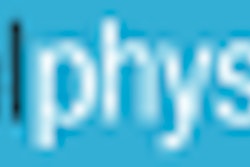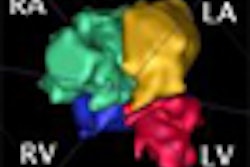
NEW YORK (Reuters Health), Nov 26 - Almost a quarter of adult men who have been treated for childhood cancer have hormone levels indicating testosterone deficiency, results of a Swedish study indicate.
"For comparison, similar endocrine pattern is found in 4% of men in general population," corresponding author Dr. Aleksander Giwercman, of Lund University, Malmo, told Reuters Health.
"Adult male survivors of childhood cancer are at risk of hypogonadism, which should be acknowledged in the long-term follow up of these men," Dr. Giwercman and colleagues conclude in the Journal of Clinical Endocrinology and Metabolism for November.
Dr. Giwercman, first author Dr. Patrik Romerius, and colleagues studied 151 male childhood cancer survivors who were treated between 1970 and 2002 and who were 18 to 45 years old in 2004. For comparison, they included 141 healthy fertile control men in the study.
They report that male survivors of childhood cancer had an almost seven-fold increased likelihood of hypogonadism in adulthood compared with fertile controls. The researchers defined hypogonadism as testosterone levels below 10 nmol/liter and/or LH above 10 IU/liter, or receipt of androgen replacement therapy.
Except for Wilms' tumor, a significantly increased risk for hypogonadism was seen in all diagnostic categories, including leukemias, brain tumors, lymphomas, and testicular cancers.
Both chemotherapy only (odds ratio, or OR, 8.0) and chemotherapy plus radiation (OR, 6.5) increased the risk of hypogonadism.
"Most studies regarding the late effects of cancer treatment on testicular function have focused on fertility issues and very little attention has been paid to the fact that these men may also develop testosterone deficiency," Dr. Giwercman noted.
"The long term consequences of low testosterone levels," the researcher added, "are quite serious: increased risk of osteoporosis, metabolic syndrome, type 2 diabetes and cardiovascular diseases. These conditions can probably be prevented if the deficiency of testosterone is diagnosed in proper time and hormone replacement is given."
Dr. Giwercman said the current study reinforces that men who have been treated for childhood cancer, once they reach adulthood, should be checked for clinical and hormonal signs of androgen deficiency: "Those having manifest testosterone deficiency should be given hormone replacement. Those with low normal values should be followed since testosterone levels decreases by age."
By Megan Brooks
J Clin Endocrinol Metab 2009;94:4180-4186.
Last Updated: 2009-11-25 11:00:36 -0400 (Reuters Health)
Related Reading
Childhood cancer survivors susceptible to diabetes, August 11, 2009
Copyright © 2009 Reuters Limited. All rights reserved. Republication or redistribution of Reuters content, including by framing or similar means, is expressly prohibited without the prior written consent of Reuters. Reuters shall not be liable for any errors or delays in the content, or for any actions taken in reliance thereon. Reuters and the Reuters sphere logo are registered trademarks and trademarks of the Reuters group of companies around the world.


















